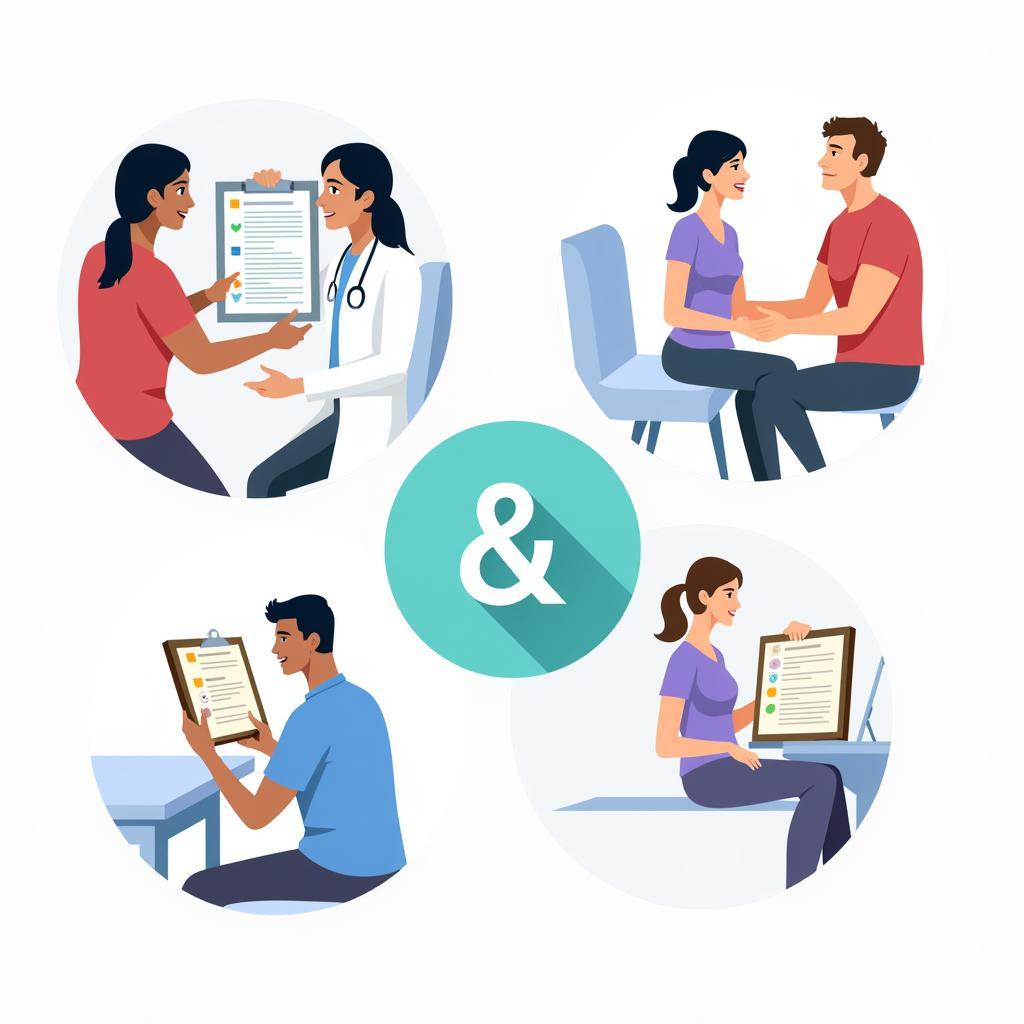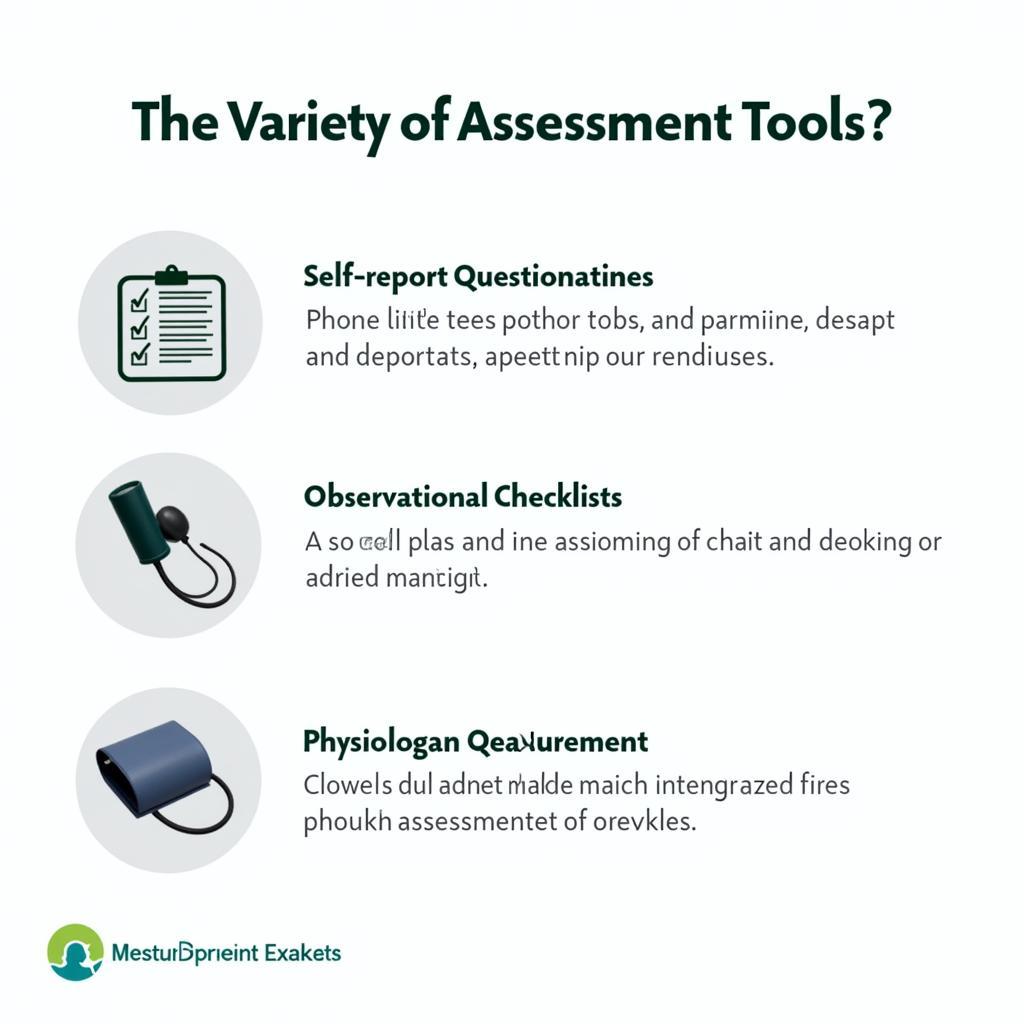Tools and assessment measures are crucial components of effective care plans. They provide a structured approach to gathering information, identifying needs, and tracking progress, ultimately leading to improved patient outcomes. These tools provide a framework for understanding the individual’s current situation, setting realistic goals, and measuring the effectiveness of interventions.  Care Plan Assessment Tools in Action
Care Plan Assessment Tools in Action
Understanding the Importance of Assessment Tools
Care plans, regardless of the setting (hospital, home care, or long-term care facility), rely heavily on accurate assessments. This initial step lays the foundation for the entire care plan. Without proper assessment, care can be misdirected, leading to wasted resources and potentially negative outcomes for the individual. What tools are used to create a care plan? A variety of tools are available, ranging from standardized questionnaires to observational checklists and interviews. The selection of the appropriate tool depends on the specific needs of the individual and the goals of the care plan.
Why Use Standardized Tools?
Standardized tools offer several advantages. They ensure consistency in data collection, facilitate comparison across individuals and settings, and often have established reliability and validity. For example, a standardized pain assessment tool like the one discussed in our pain assessment tools chronic care article allows healthcare professionals to objectively measure and track pain levels, leading to more effective pain management.
Types of Tools and Assessment Measures
There are various types of assessment tools, each designed to gather specific information. These tools can be categorized broadly as:
-
Self-report measures: These tools rely on individuals providing information about themselves, often through questionnaires or interviews. They are valuable for capturing subjective experiences, like pain, quality of life, and emotional well-being.
-
Observational measures: Healthcare professionals directly observe and document the individual’s behavior, abilities, and functional status. These measures are essential for assessing physical function, cognitive skills, and social interaction.
-
Physiological measures: These tools involve collecting objective physiological data, such as vital signs, laboratory results, and imaging studies. They provide crucial information about the individual’s physical health and can help identify underlying medical conditions.
 Different Types of Assessment Tools Used in Care Plans
Different Types of Assessment Tools Used in Care Plans
For example, the esas tool palliative care provides a standardized approach to assessing and managing symptoms in palliative care, leading to improved comfort and quality of life for patients. Furthermore, in post-acute care settings, the post acute care assessment tool can help facilitate the transition from hospital to home and ensure the continuity of care.
Choosing the Right Tool
The selection of appropriate assessment tools is a critical step in developing effective care plans. The chosen tools should align with the specific needs of the individual, the goals of the care plan, and the available resources. Factors to consider include the individual’s age, cognitive ability, cultural background, and health condition.
“Choosing the right assessment tool is like selecting the right tool for a job,” says Dr. Amelia Carter, a geriatric specialist with 20 years of experience. “You wouldn’t use a hammer to tighten a screw. Similarly, you wouldn’t use a cognitive assessment tool for someone who primarily needs a physical function assessment.”
Implementing and Monitoring Care Plans
Once the assessment is complete and the care plan is developed, it’s important to implement and monitor its effectiveness. Regular monitoring helps ensure that the care plan remains relevant and responsive to the individual’s changing needs.  Monitoring Care Plan Progress Through Regular Assessments Tools such as the health care clinical quality measure tool can be invaluable in tracking progress and identifying areas for improvement.
Monitoring Care Plan Progress Through Regular Assessments Tools such as the health care clinical quality measure tool can be invaluable in tracking progress and identifying areas for improvement.
Ensuring Quality and Safety
Regular audits and quality assurance measures are essential to ensure that care plans are being implemented effectively and safely. Tools like the infection control in care homes audit tool can help identify potential risks and prevent infections, a crucial aspect of providing safe and high-quality care.
“Regular monitoring and evaluation are critical to ensure the care plan is meeting the individual’s needs and goals,” adds Dr. Carter. “It’s a dynamic process that requires ongoing adjustments based on the individual’s response to interventions.” Dr. Michael Davis, a leading expert in healthcare quality, emphasizes the importance of data-driven decision making in care planning. “By using standardized assessment tools and tracking outcomes, we can identify best practices and improve the quality of care for all individuals.”
Conclusion
Tools and assessment measures are essential for developing and implementing effective care plans. By using appropriate tools and regularly monitoring progress, healthcare professionals can ensure that individuals receive the best possible care tailored to their unique needs. This comprehensive approach, focused on accurate assessment and continuous monitoring, leads to improved outcomes and enhances the quality of life for those receiving care.
FAQ:
- What are the different types of assessment tools used in care plans?
- How do I choose the right assessment tool for a specific individual?
- Why is regular monitoring of care plans important?
- What are some examples of standardized assessment tools?
- How can assessment tools improve patient outcomes?
- What is the role of technology in care plan assessment?
- Where can I find more resources on care plan development and assessment?
Need assistance? Contact us via WhatsApp: +1(641)206-8880, Email: [email protected] or visit us at 910 Cedar Lane, Chicago, IL 60605, USA. We have a 24/7 customer support team ready to assist you. For more information on related topics, explore other articles on our website, such as those focusing on specific assessment tools and care planning strategies.

Leave a Reply